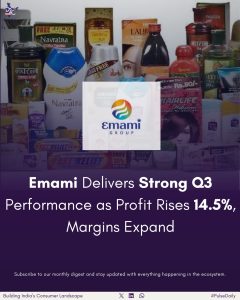
Wealthtech startup Jar is making waves in the Indian D2C space. The company reported profits in the first two quarters of 2025 (Q4 FY25 and Q1 FY26). This is a big shift for the fintech brand, known for letting users make small investments in digital gold. They’ve also moved into the D2C jewelry business.
At a time when D2C news is full of funding, growth, and IPOs, Jar’s story is about financial smarts and growing into new areas. The startup has cut its yearly losses in half, down to INR 35.3 crore in FY25 from INR 104 crore in FY24. Jar’s revenue also jumped to INR 208 crore in FY25, up from INR 49 crore the year before. Overall, total revenue went up nearly 43x year-over-year to INR 2,450 crore. This was mainly due to Jar’s move from being an intermediary to directly selling digital gold. Now, Jar records the full value of gold sales as revenue. This shows how scalable its D2C model is in India and how the company is changing.
Founded in 2021 by Nishchay AG and Misbah Ashraf, Jar allows users to start saving with just INR 10 through its app. The app uses UPI Autopay to encourage consistent saving habits. This strategy has gained them over 35 million users across 12,000 pin codes. For the Indian D2C world, this level of adoption is a success story in product-led growth and changing consumer behavior, mainly because most Jar users had never saved before.
To expand, Jar launched Nek, its D2C jewelry brand, in 2024. Nek offers a selection of gold and silver jewelry, including rings, earrings, necklaces, and coins. By entering the e-commerce jewelry market, Jar is now competing with traditional jewelers and other new D2C brands in India. As D2C plans change, jewelry retail gives Jar more chances for repeat purchases and better brand recognition, strengthening its overall strategy.
Jar has raised over $111 million from VCs like Tiger Global, Arkam Ventures, WEH Ventures, and Tribe Capital. Its last round was a $22 million Series B at a $300 million valuation. But, earlier in 2025, talks with Prosus and others for a $50 million round didn’t work out due to disagreements on valuation. Investors valued Jar between $200-250 million, while the startup wanted its previous valuation. This situation shows what’s happening with D2C funding, where investor views and startup valuations affect deals.
Looking ahead, Jar is reportedly talking to bankers about a possible IPO in 2026. If it happens, Jar could be one of the top D2C brands of FY25 to go public. With profits, a growing jewelry line, and a large user base, Jar is setting itself up as a leader in the Indian direct-to-consumer market, changing how people save and buy jewelry in 2025.








